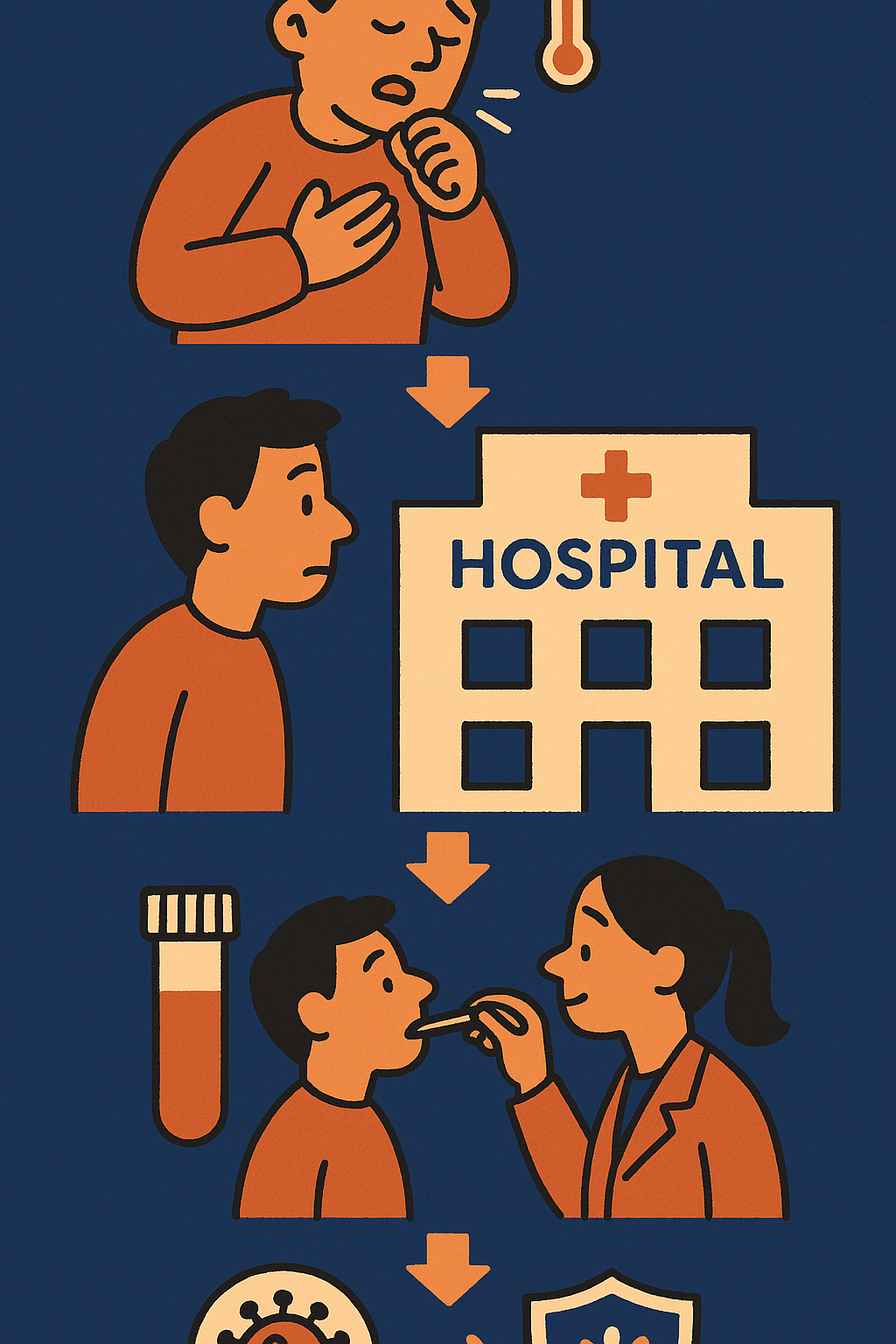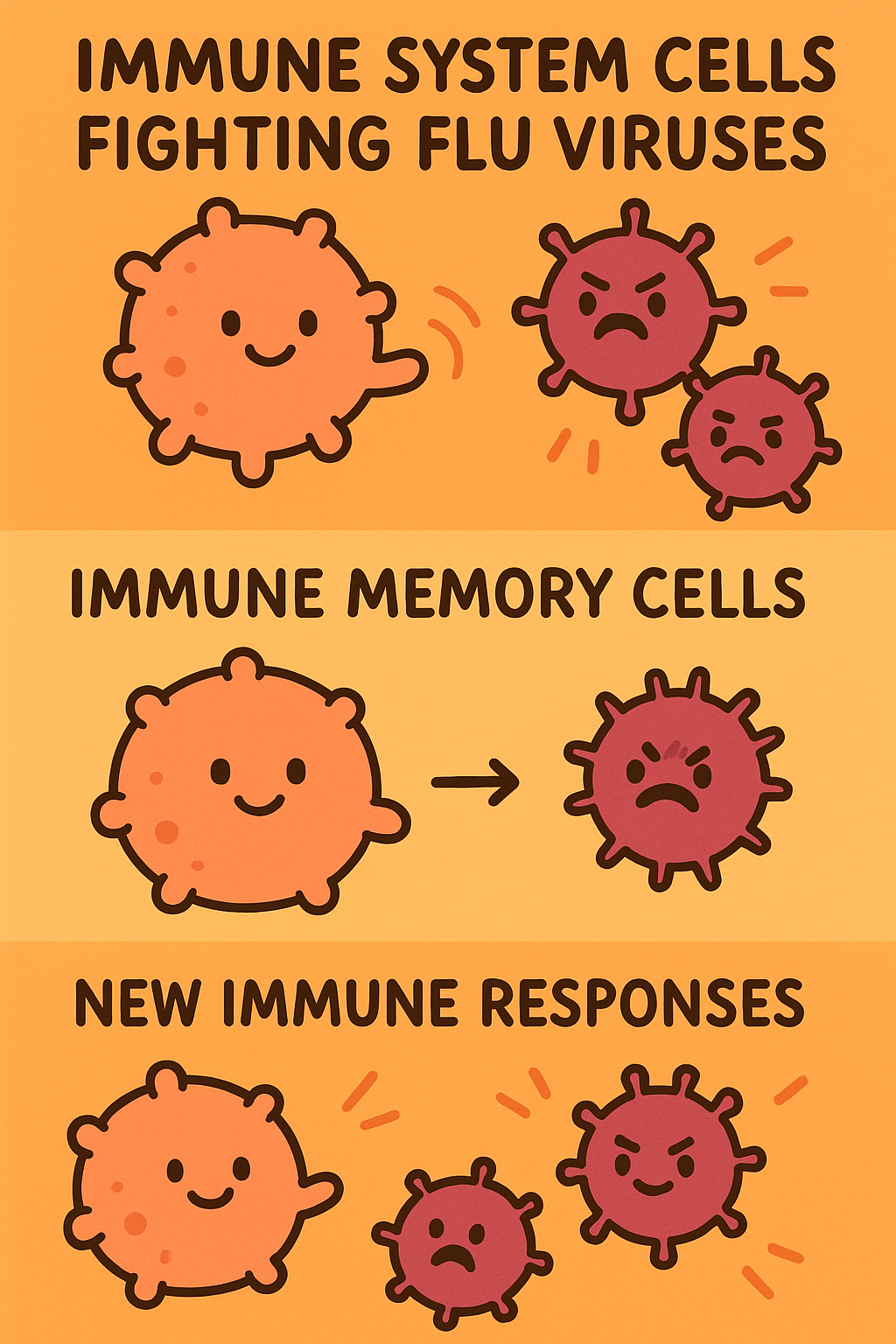Key Takeaways
- Influenza (flu) is a common viral infection that affects the nose, throat, and
lungs, causing symptoms like fever, cough, and congestion.
- Understanding how the flu triggers immune responses can help scientists make
better vaccines and treatments.
- Clinical trials offer access to emerging treatments and expert care that may not
be available elsewhere.
- Joining a Influenza trial can help advance research while potentially improving
your quality of life with supervised support.
A New Horizon in Influenza Research
Clinical trials are essential for advancing medical knowledge. This spotlight highlights the Flu Infection at
UPHS trial (NCT06807840) led by the University of Pennsylvania. The study aims to learn how the immune system
reacts when people get the flu, which affects many every year and can cause coughing, fever, and feeling
tired.
Understanding new research is a top priority for patients and caregivers seeking information on treatment
options, managing side effects, and exploring potential avenues for improvement. This post aims to provide a
clear overview of what this trial is about and how it could potentially impact the future of Influenza care.
Understanding Influenza and the Need for New Approaches
Influenza, commonly called the flu, is a contagious virus that causes respiratory illness. It spreads easily
from person to person and causes symptoms like coughing, fever, and congestion. Current flu vaccines help
protect people, but the body’s response to actual flu infections can vary. This study aims to better
understand the immune responses after flu infections to improve future flu vaccines and treatments.
Curated Facts and Expert Data
PubMed: This study looked at nasal fluids from children with the flu to find out which proteins are found
more during infection. Researchers found ten proteins, such as PLUNC, cystatin S, and S100A9, were increased
when someone was infected with the flu. Knowing about these proteins can help us better understand how the
flu affects the body by looking at what's happening in the nose during illness.
[1].
American Thoracic Society Journals: This research studied people with the flu and measured immune signals,
called cytokines, in their nose and throat. The study found that certain molecules—MCP-3, IFN-α2, and
IL-10—could predict how sick a person would get, no matter how old they were or how much virus they had.
These findings mean that specific immune markers could help doctors know who might get sicker from the flu.
[2].
Influenza Symptoms
Influenza can manifest in various ways, but some of the most common symptoms include:
- Fever
- Cough
- Congestion
- Fatigue
- Body aches
- Sore throat
- Headache
These symptoms can make everyday activities hard and can vary in intensity from mild to severe. Learning more
about these symptoms helps doctors develop better ways to prevent and treat the flu, as studied in the Flu
Infection Study trial.
Introducing the Trial's Focus: Studying Immune Responses to
Influenza Infection
The Flu Infection Study trial is an observational study that looks at how the immune system responds to an
active flu infection.
What is Immune Imprinting?
Immune imprinting is how your body remembers past flu infections or vaccinations and uses that memory to fight
new flu viruses. This study wants to see whether your immune system relies more on this memory or builds new
defenses when you actually get sick with the flu.
This study is designed to see how the body’s immune system reacts to flu infections, focusing on whether
memory immune cells or new immune responses are triggered.
Mechanism of Action
The study looks at memory immune cells—special cells that remember past flu viruses—and how they produce
antibodies, which help fight infections. It also studies new immune responses that may develop during flu
infections to understand how the body defends itself.
By studying immune responses after actual flu infections (not just vaccination), researchers hope to learn new
details about how the body fights the flu, which could lead to better vaccines and treatments.
Trial design
This observational study tracks flu patients over time to observe their immune responses naturally without
giving any treatment, providing real-world insights about flu immunity.
Why is this Trial Important for Patients?
The Flu Infection Study embodies this important role in research by providing a path to:
-
Better understanding of flu immunity: This trial helps scientists learn how immune memory and new immune
responses defend against flu viruses, which can improve future flu vaccines and treatments.
-
Developing improved flu vaccines: Insights from this study could lead to vaccines that offer broader and
longer-lasting protection.
-
Enhancing patient care: By understanding immune responses in flu infections, healthcare providers may better
tailor treatments and prevention strategies in the future.
Who Can Participate? Eligibility at a Glance
Clinical trials have specific criteria to ensure the safety of participants and the validity of the study
results. For the Flu Infection Study trial, key eligibility criteria
include:
- Age: 18 years or older
- Diagnosis: Positive influenza test within the University of Pennsylvania Health System
- General Health: Participants must consent and be able to complete study procedures
- Exclusion: Allergic to latex, immunosuppressed, pregnant, recent treatment with immunoglobulins or
chemotherapy, active cancer within past 5 years, HIV, hepatitis B or C infections, or other conditions
affecting immune evaluation
- Weight: Must weigh at least 110 lbs
- Hospitalization: Cannot have prolonged inpatient hospitalization interfering with study
What to Expect as a Participant
If you qualify and join the Flu Infection Study trial, you can expect:
-
Screening: A series of tests and evaluations to confirm your eligibility at no cost.
-
Sample Collection: Researchers will collect blood and nasal samples multiple times over up to two years to
study your immune response to the flu. No flu treatment is given as part of this observational trial.
-
Monitoring: Regular check-ups will monitor your health and immune response. The research team will explain
all procedures and answer questions at no cost to you.
-
Follow-up: You will be followed for up to two years to track your immune system’s response over time.
The duration of your participation will vary depending on the study design, but the research team will explain
the full commitment before enrollment.
Potential Risks and Benefits
Like all medical interventions, participation in a clinical trial carries both potential benefits and risks.
Potential Benefits:
- Access to a new treatment before it’s widely available.
- Close monitoring by a team of medical experts.
- Contributing to medical knowledge that could help future patients with Influenza.
Potential Risks:
- The new treatment may not be effective for you.
- Because this study involves sample collection, you may experience mild discomfort from blood draws or
nasal swabs. There are no known additional risks beyond standard care for flu infections.
- The time commitment for study visits and procedures.
A detailed explanation of all potential risks and benefits will be provided during the informed consent
process.
How to Learn More and Get Involved
The Flu Infection Study trial (NCT06807840) is currently recruiting at Penn Presbyterian Medical Center in
Philadelphia, Pennsylvania, United States.
If you are interested in potentially participating, it is crucial to discuss these criteria with your
healthcare provider. They can determine if you meet the specific requirements. You may share this link with
your provider’s email address, or have them visit ClinQuestAi.com and type in NCT06807840.
You can also:
- Contact study coordinators Scott Hensley, PhD (hensley@pennmedicine.upenn.edu) or Elizabeth Drapeau, PhD
(elizabeth.troisi@pennmedicine.upenn.edu) at 215-573-3756 for more information.
Remember: Deciding to participate in a clinical trial is a personal choice. It’s important to discuss all
aspects of the trial with your healthcare provider to ensure it’s the right decision for your individual
health situation.
Further Reading:
Our Commitment to Accuracy and Trust
All health-related content on this website, whether drafted by our team or with AI assistance, undergoes a
rigorous human review process before publication. Every article is fact-checked, edited, and medically
reviewed by a licensed medical professional with relevant expertise. Our goal is to provide information that
is accurate, aligned with current medical consensus, empathetic, and useful for patients and caregivers. We
are committed to transparency, clearly citing sources and displaying author and reviewer credentials to uphold
the highest standards of E-E-A-T (Experience, Expertise, Authoritativeness, and Trustworthiness).

